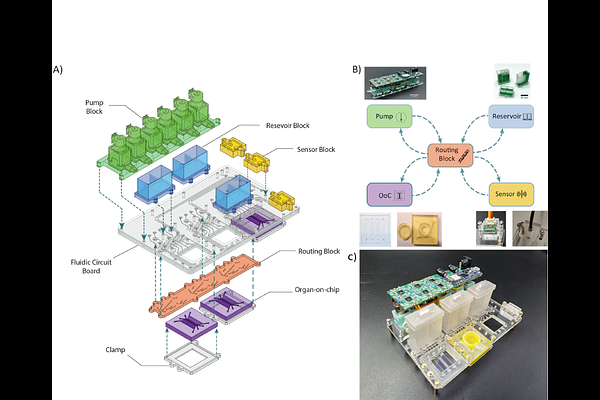STARTER : A Stand-Alone Reconfigurable and TranslationalOoC Platorm based on Modularity and Open Design Principles

STARTER : A Stand-Alone Reconfigurable and TranslationalOoC Platorm based on Modularity and Open Design Principles
Paul, A.; Safai, E. R.; de Heus, L.; Vollertsen, A. R.; Weijgertse, K.; de Wagenaar, B.; Amirabadi, H. E.; van de Steeg, E.; Odijk, M.; van der Meer, A.; Loessberg-Zahl, J.
AbstractOrgan-on-Chips (OoC) have the potential to revolutionize drug testing. However, the fragmented ecosystem of available OoC systems leads to wasted resources and collaboration barriers, slowing uptake. To address this, there is a need for OoC platforms based on interoperability standards, modularity, and reconfigurability. Technology platforms based on open designs would enable seamless integration of diverse OoC models and components, facilitating translation. Our study introduces a modular microfluidic platform that integrates swappable modules for pumping, sensing, and OoCs, all within the ANSI/SLAS microplate footprint. Sub-components operate as microfluidic building blocks (MFBBs) and can interface with the demonstrated Fluidic Circuit Board (FCB) universally as long as the designs adhere to ISO standards. The platform architecture allows tube-less inter-module interactions via arbitrary and reconfigurable fluidic circuits. We demonstrate two possible fluidic configurations which include in-line sensors and furthermore demonstrate biological functionality by running both in-vitro and ex-vivo OoC models for multiple days. This platform is designed to support automated multi-organ experiments, independent of OoC type or material. All designs shown are made open source to encourage broader compatibility and collaboration.